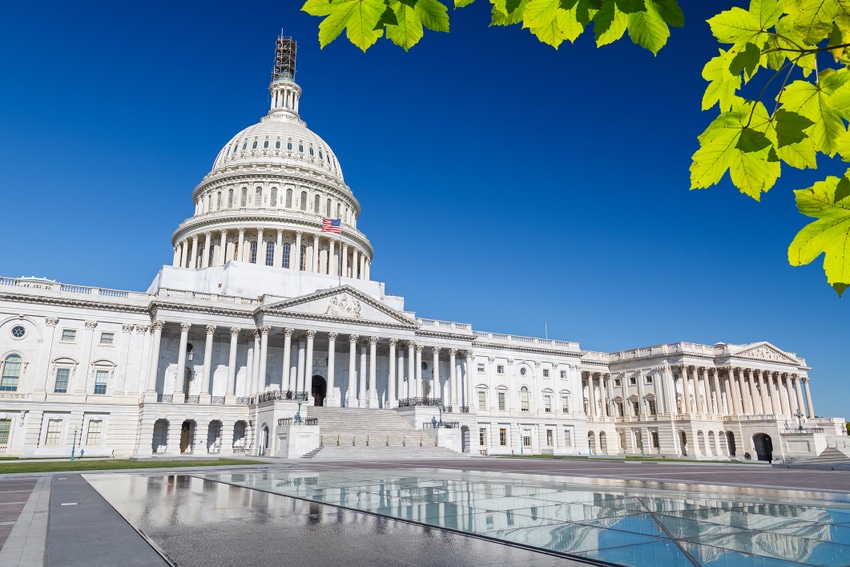NPPC pushes for ag inspection funds as ASF lurks
Germany’s recent African swine fever finding highlights needs to keep borders and ports safe.

The National Pork Producers Council (NPPC) urged Congress to fully fund foreign animal disease prevention programs, with a $630 million shortfall looming. During NPPC’s Legislative Action Conference this week, members made their case for the additional authorization as well as for additional support in the aftermath of the COVID-19 pandemic.
NPPC president Howard “AV” Roth, a hog farmer from Wauzeka, Wis., said during a press call Thursday afternoon that the recent finding of African swine fever (ASF) in a wild boar in Germany is an “ever-present reminder that the United States needs to remain vigilant to protect borders and ports from African swine fever and other foreign animal diseases.”
U.S. Bureau of Customs & Border Protection agricultural inspections at U.S. ports of entry are funded by Agricultural Quarantine Inspection (AQI) program user fees. Due to the pandemic-related economic downturn and significant reductions in travel, collection of these user fees has dropped precipitously.
“Without a prompt resolution, there will be an estimated $630 million shortfall in AQI funding through the end of fiscal year 2021. It is imperative that this funding shortfall be addressed to protect the U.S. swine herd and all of agriculture from foreign animal and plant diseases,” Roth stated. He said the reserve funds will be depleted this month without a prompt resolution to the $630 million shortfall of AQI funding for the fiscal year.
“Ag inspectors are the first line of defense to ensure the $1 trillion agricultural is safe,” Roth said, so it would be “unthinkable to let our guards down.” If left unaddressed, he said it would bring serious consequences for not just livestock producers but all agricultural producers.
“An outbreak of ASF would bring a devastating blow to hog farmers already teetering on the edge,” he added.
Nick Giordano, NPPC vice president and counsel, global government affairs, said it is his understanding that the additional funding is not included in the continuing resolution currently under discussion in Congress. He noted that the issue is one of the many things that happened because of COVID-19, but people’s attention was pulled in a million directions. “We tried to put some sunlight on it -- hopefully sooner, rather than later -- to get it appropriated,” he said of the funds.
When asked how U.S. producers may benefit on the export scene because Germany has been shut out of exporting to China, Japan, South Korea and the Philippines, NPPC chief executive officer Neil Dierks said it’s hard to speculate whether the U.S. will take additional market share from Germany. “Generally, these kinds of things have been positive for us,” Dierks said, adding that it also shows the need to focus on securing U.S. borders against ASF to protect the U.S. hog herd.
Additionally, NPPC is advocating for a COVID-19 assistance package that includes the following provisions: (1) compensation for euthanized and donated hogs; (2) additional funding for animal health surveillance and laboratories, which have appropriately assisted and shared resources with their public health partners; 3) modification of the Commodity Credit Corp. charter so a pandemic-driven national emergency qualifies for funding; (4) additional funds for direct payments to producers without restriction, and (5) extension of the Paycheck Protection Program, with modifications to make it accessible to more producers.
Another topic farmers discussed with legislators was congressional action on the Livestock Mandatory Reporting (LMR) set to expire Sept. 30, 2020.
NPPC science and technology legal counsel Andrew Bailey said, “We’re still working diligently to get consensus on a full five-year reauthorization package. In the interim, it is imperative that Congress extends authorization past Sept. 30 to allow for that process to continue. We’re pushing for that to happen in the continuing resolution. If authority lapses on the LMR, [the U.S. Department of Agriculture] would no longer have mandatory price reporting authority, and the agency would have to re-promulgate all of the regulations around LMR.”
About the Author(s)
You May Also Like





